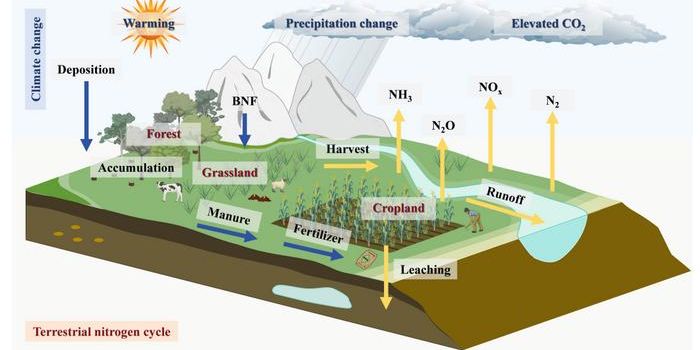It's Very Likely That Clouds Will Make Global Warming Worse
For many years scientists have been investigating the role of clouds in global warming. Using satellite measurements to assess cloud cover, researchers have now found that over the long term, clouds will probably amplify heating and exacerbate climate change. Before the industrial revolution, atmospheric levels of carbon dioxide (CO2) were around 280 parts per million (ppm). On July 21, 2021, the atmospheric CO2 level at the Mauna Loa Observatory in Hawaii, where standard records are now kept, was 417.08 ppm (there is seasonal flutuation but the overall trend is undeniably upward).
This study, which has been reported in the Proceedings of the National Academy of Sciences, also found that if atmospheric levels of CO2 exceed twice the pre-industrial level, it's less likely that the planet will avoid 2°C of warming, and over 3°C of global warming becomes more likely.
Climate sensitivity is how much warming will occur when atmospheric CO2 concentrations double compared to pre-industrial levels. We might get to around 560 ppm by mid-century unless significant steps are taken to reduce CO2 emissions. We may also need to lower methane and nitrous oxide emissions; both are potent greenhouse gases and their atmospheric levels are also rising.
One major uncertainty in predictions about global warming is the effect of clouds, and how clouds might change as the climate does. Clouds can enhance and reduce warming depending on several factors including how high and dense they are. Low clouds can block the sun from hitting the ground and have a cooling effect. Higher clouds tend to allow the sun's rays to hit the ground, and when the energy bounces back from the Earth, it may then be trapped by clouds; high clouds can heat things up in different ways.
Researchers want to make accurate predictions about climate change so we can prepare for them, and mitigate their impact or take greater steps to stop them from happening.
"The value of the climate sensitivity is highly uncertain, and this translates into uncertainty in future global warming projections and in the remaining 'carbon budget' - how much we can emit before we reach common targets of 1.5°C or 2°C of global warming," said study co-author Dr. Paulo Ceppi of the Imperial College of London. "There is therefore a critical need to more accurately quantify how clouds will affect future global warming."
This study used computational tools to suggest that there's a greater than 97.5 percent probability that clouds will enhance global warming, and that if CO2 levels double, about 3.2°C of warming will result.
Check out the Climate Indicators Explorer site here.
Sources: Phys.org via Imperial College London, Proceedings of the National Academy of Sciences










